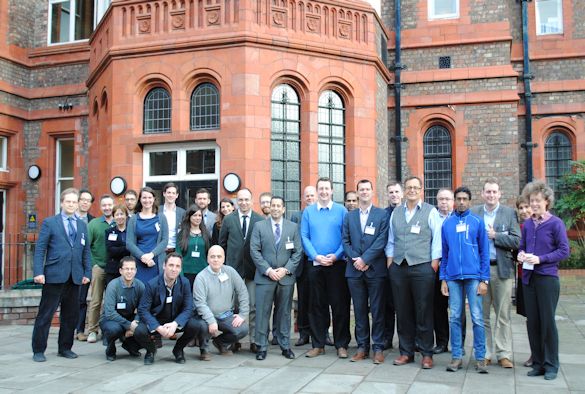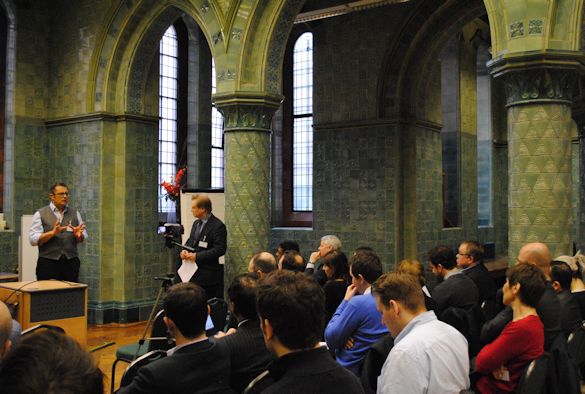
Scientists and medical practitioners came together for a two-day workshop to review and discuss treatment and modelling of abdominal aortic aneurysms
The multidisciplinary workshop which included mathematicians, bioengineers, medical practitioners and surgeons is one of the regular events organized by the EPSRC Liverpool Centre for Mathematics in Healthcare (LCMH). The new Centre aims to tackle emerging Healthcare challenges through mathematical modeling approach and collaborating efforts.
The aorta is the human body’s main supplier of blood, a ruptured abdominal aortic aneurysm can cause life-threatening bleeding. Mathematical modeling (blood flow, dynamic response, deformation, imaging, wave reflection, structure analysis etc) can provide insights on how the treatment procedures could be potentially improved for the benefit of patients in a precise and personalized way.
Professor Alexander Movchan, one of the workshop organisers and a LCMH theme lead said: “This event brought an excellent range of speakers and presentations related to the topic. It was a highly successful and stimulating research event that has strengthened existing research links and generated new research connections which will lead to new collaborations.”
The LCMH has recently announced it is offering pump-priming funds for new projects for researchers working in healthcare sector technologies. For further information on this scheme, visit this webpage.
The workshop was organised by Professors Francesco Torella, Richard McWilliams, Robert Fisher from the Royal Liverpool and Broadgreen University Hospital Trust and Professor Alexander Movchan and Dr Luca Argani from LCMH.
